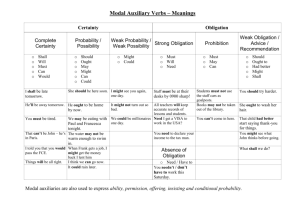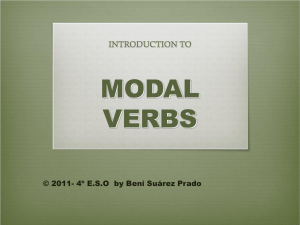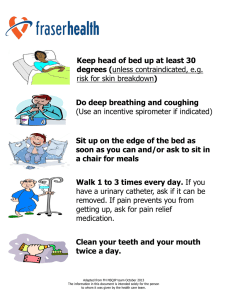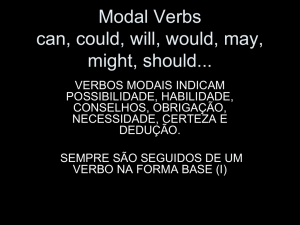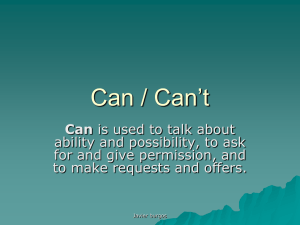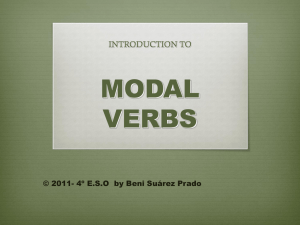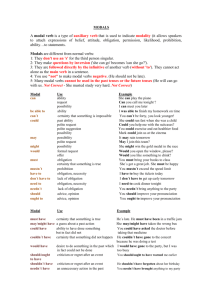English Modal Verbs – Situations Table
advertisement
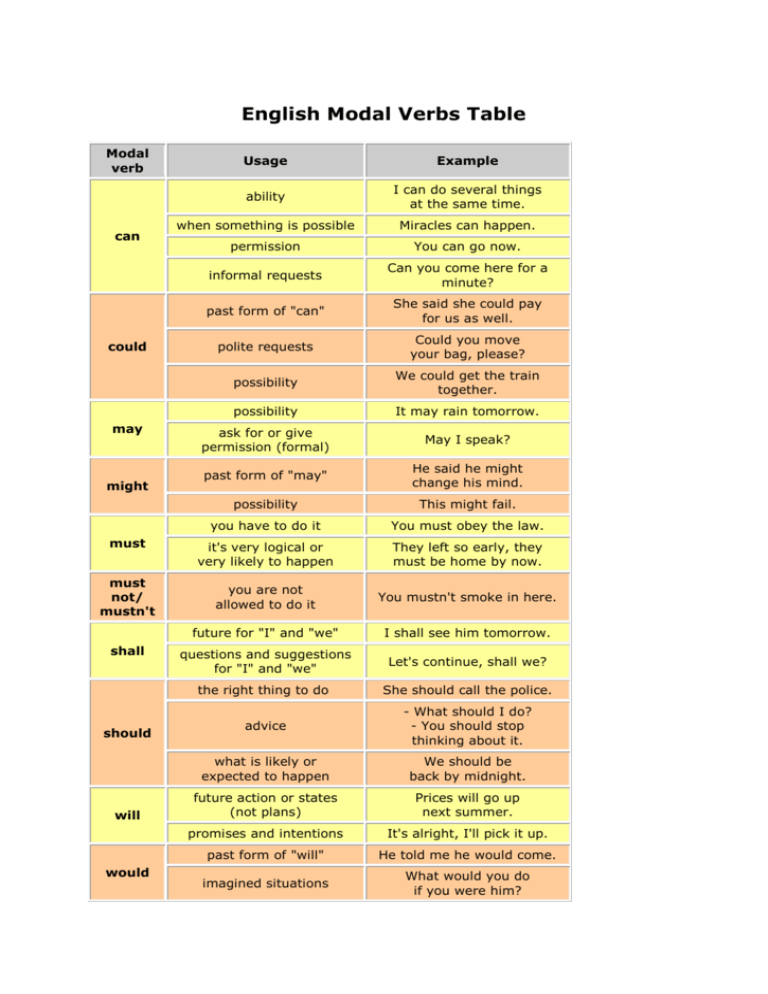
English Modal Verbs Table Modal verb can could may might must must not/ mustn't shall should will would Usage Example ability I can do several things at the same time. when something is possible Miracles can happen. permission You can go now. informal requests Can you come here for a minute? past form of "can" She said she could pay for us as well. polite requests Could you move your bag, please? possibility We could get the train together. possibility It may rain tomorrow. ask for or give permission (formal) May I speak? past form of "may" He said he might change his mind. possibility This might fail. you have to do it You must obey the law. it's very logical or very likely to happen They left so early, they must be home by now. you are not allowed to do it You mustn't smoke in here. future for "I" and "we" I shall see him tomorrow. questions and suggestions for "I" and "we" Let's continue, shall we? the right thing to do She should call the police. advice - What should I do? - You should stop thinking about it. what is likely or expected to happen We should be back by midnight. future action or states (not plans) Prices will go up next summer. promises and intentions It's alright, I'll pick it up. past form of "will" He told me he would come. imagined situations What would you do if you were him? ought to for polite requests, offers and invitations - Would you please sit down? - Would you like some tea? - We are meeting with Sarah next Saturday, would you like to come along? to say what you want to do or have I would like a piece of cake. the right thing to do You ought to apologize. Top English Modal Verbs – Situations Table Situation Modal Verb Example requests (formal) may May I sit down? requests (informal) can Can I sit down? requests (polite) could Could I sit down? requests (polite) would Would you mind if I sit down? permission (formal) may You may sit down. permission (informal) can You can sit down. obligation (full) must You must tell the police the truth. obligation (partial) should You should tell your friends the truth. obligation (partial) (less common) ought to You ought to tell your friends the truth. logical conclusions (stronger than "should") must He left an hour ago, so he must be there already. logical conclusions (weaker than "must") should He left half an hour ago, I believe he should be there already. possibility (general) can It can rain sometimes. possibility (weaker than "may" and "might") could It could rain, but it is not very common in this part of the country. possibility (weaker than "may") might It's not very cloudy yet, but it might rain. possibility (stronger than "might") may It's starting to get cloudy – it may rain soon. future actions/states/intentions will Look at the sky! It will rain soon. N.B. If advice has not been sought, “you should tell the truth to your friends” may be perceived as obligation. This may be inappropriate because it is very direct. An alternative would be to say “I think we should tell the truth to our friends”.
